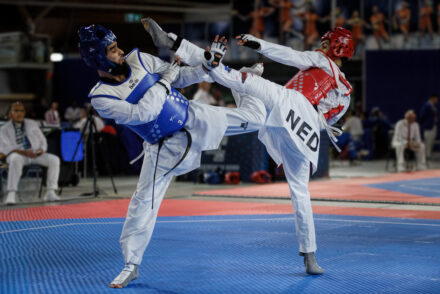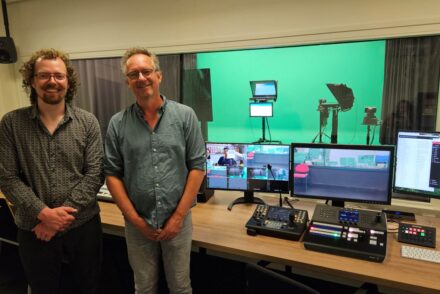Tomislav Chokrevski: “You are not the master of your own mind”
Tomislav Chokrevski, who graduated from Tilburg Law School in 2016, won the Max van der Stoel Award with his master thesis Re-Writing Brains and Minds. The thesis, which was awarded with a ten, also won the prize for the university’s best thesis a couple weeks ago. “The field of neurosciences is advancing, but people are not aware of the risks that come with it”, says Chokrevski. In his thesis he wants to lay a foundation for other people to build on.
Chokrevski: “New technologies are going to allow us to tinker with the brain. That will make it possible for us to change almost every facet of being human that we can imagine.” Those technologies can be used for the benefit of mankind: to cure certain diseases for example. But, according to Chokrevski, they can also do a lot of harm to society. They can be used for propaganda and indoctrination. “I would like to push back to the idea that we are the masters of our own mind, and erect the necessary protections and even criminalization where we would need to. To protect people against psychological predators.”
Gay conversion therapy
Chokrevski thinks these types of problems are best explained by a practical example. “Gay conversion therapy is something that Mike Pence, the vice-president elect of the United States, is a big supporter of. The way they have done it until now is: sending people to camps where they get electroshock therapy and negative conditioning to ‘cure’ them from being gay. People will be, and are already trying to do this without the needles and pills. That is where we are going with the newer technologies.” People are scared of electric shocks and needles, but Chokrevski thinks there is more to it than that. “Nobody is addressing the influences that already start you down this path. The churches that get you into that camp, they get you to want those needles in your brain. You might not really want that but they make you believe you do.” According to Chokrevski that is a perfect example of indoctrination.
“Indoctrination is much more powerful than manipulation, in terms of your autonomous capacity. Your ability to choose for yourself is gone when you are indoctrinated. Indoctrination is the critical point that I focus on in this thesis. It might sound like I have a bone to pick with religion, specifically organized religion. But it is just the perfect example. It is probably one of the oldest institutions that was and is guilty of practicing indoctrination.”
“There has to be a way to punish people who use new technologies the wrong way”
Regarding the example of gay conversion therapy, Chokrevski asks himself: What happens when you do the same thing to political orientation or any other aspect of your preferences? “And that is already happening”, he says.
“Another example is the wave of populism in the western world. The people on the right are trying to influence the minds of people emotionally in ways that people are not quite aware of. You are making them incapable of reflecting. And once you lock them down in that emotion, people stop thinking. They are yours.” Chokrevski feels it is necessary to fight back against these trends.
“People think that you are the master of your own mind. You are not”
“Nobody takes those threats seriously. Because people think that you are the master of your own mind. Well, you are not.” Chokrevski says that propaganda is indifferent about truth. “Propaganda doesn’t care about being right or wrong. Trump is a great example, he doesn’t care about the truth. The only thing he cares about is setting that emotional frame into your mind and getting you emotionally charged. It is already too late after that.”
Chokrveski wants to fight against this kind of politics. “I want to tackle that sort of political trickery. It is about subjugating their psyche to support, in this case, Trump.” His goal is clear, but not simple: “I hope to empower individuals to fight back against organized institutions that are exploiting them and hiding behind the assumptions of invulnerability in this right for freedom of thought .” This thesis is the first step in doing that, but, Chokrevski adds: “It is going to be an uphill battle.”






